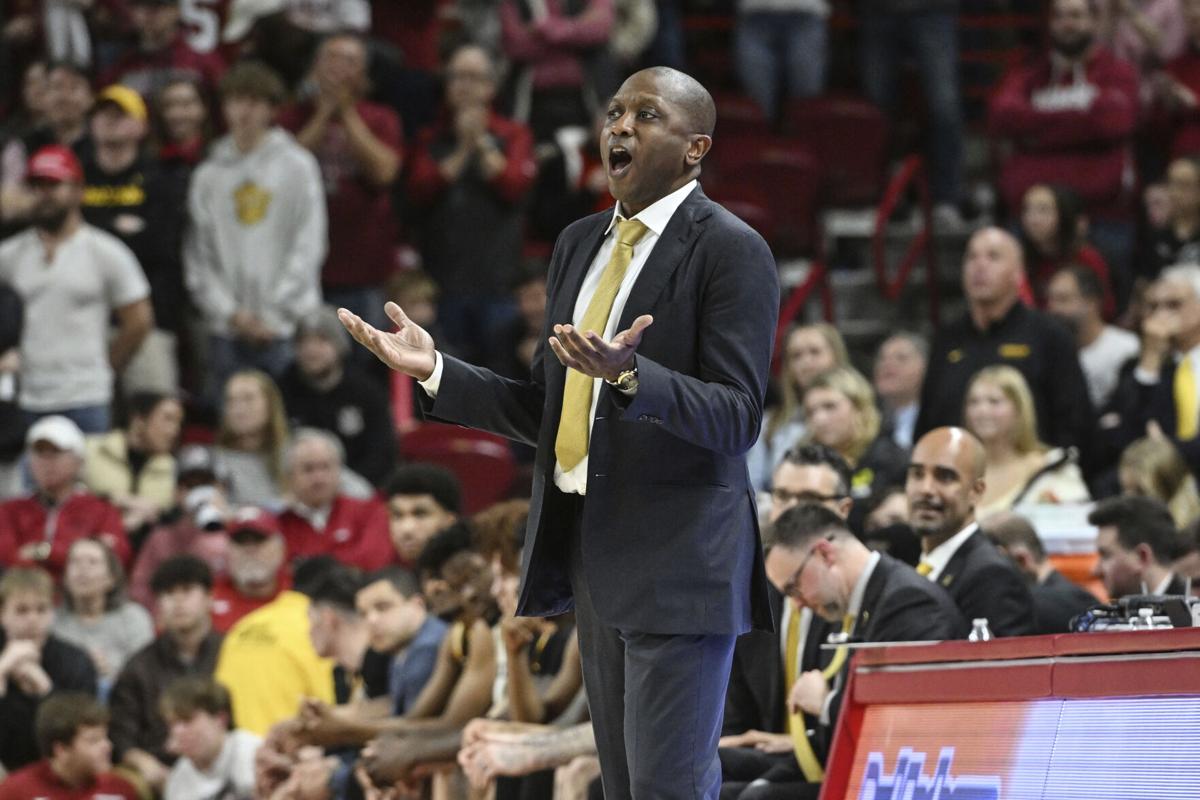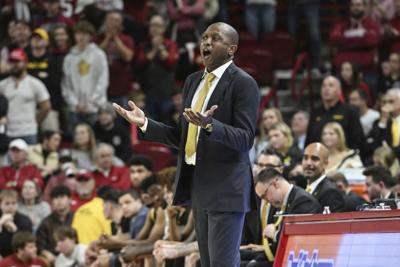COLUMBIA, Mo. — So what was that down in Fayetteville?
A couple of days after the Missouri men’s basketball team dropped a road game to Arkansas, there’s both plenty and very little to make of the loss.
While it was a missed opportunity for the Tigers to advance in the race for Southeastern Conference tournament or NCAA tourney seeding, it didn’t cost them much in national reputation: Splitting games against the Hogs and Alabama resulted in Mizzou moving up one spot in The Associated Press poll, to No. 14, the highest it has been ranked under third-year coach Dennis Gates.
Perhaps it was a reality check for a team that has been flying closer and closer to the sun, especially after knocking off the Crimson Tide at home last week. Gates, with the benefit of hindsight and a chance to go through film, attributed the league-play-high 18 turnovers committed Saturday by MU to “excitement” and “giddiness.”
People are also reading…
The stage of the season also could be a factor. With players’ bodies wearing down but the stakes of each game only gaining altitude from here, Mizzou had to trim back practice intensity between the rapid-fire battle with Alabama and Saturday’s road fixture and “minimize practice time” with the turnaround between those Wednesday-Saturday games.
“Now you got to go on the road and defend,” Gates said. “We just didn’t snap back and recoil how we needed to in those moments to defend.”
The defeat to Arkansas also might have shown a vulnerability in Missouri’s armor: free throws.
The Tigers lead the SEC in free-throw rate, which confirms the obvious: They’re good at getting to the line and get there often. And while Mizzou is 11th in the league at actually making free throws, the charity stripe is quite important to what the team does. About 23% of its points come from the free-throw line, which is the third-highest proportion in the league.
So when the Razorbacks earned 37 free throws and made 28 to MU’s 17 earned and 13 made, that’s going to throw a wrench in the Tigers’ plans.
“We wasn’t able to execute and draw the fouls that we usually draw at the rim,” Gates said immediately after the loss. “I think we drew five fouls in the first half — five or six or something like that. That was tough for us.”
His recollection was correct: Missouri was fouled six times in the first half of that game, leading to five free throws.
Gates has not been shy in attributing struggles to “the whistle,” pointing out how it can fluctuate between arenas and officiating crews. It’s the tightrope he walks of pointing out that foul calls are a key part of Mizzou’s on-court style without saying something that’ll get him fined by the SEC.
So is there a vulnerability showing with the Tigers in foul calls? If they don’t get the whistles when they think they should — or get whistled when they think they shouldn’t, are they toast?
To some degree, the answer is no. Despite the lopsided free-throw margin against Arkansas, Mizzou only lost by seven points and was an open Caleb Grill 3 away from making it a one-possession game inside the final 45 seconds. But it does seem fair to suggest that Missouri could use — and will need — the ability to adapt to less-than-helpful whistles in the postseason, if or when those appear.
What does Gates think goes into that?
“You got to minimize your mistakes,” he said Monday. “You can’t come at halftime with 10 turnovers in a game where you’re not getting to the foul line how you think you should.”
And MU, for the record’s sake, actually turned the ball over 12 times in the first half of the weekend’s game.
On a player-level, forward Mark Mitchell is a key part of adapting to the whistle. He leads Missouri with four fouls drawn per game in league play and attempts 6.4 free throws per game. Opposing teams now almost automatically double him down low, trying to force misses from the offensive centerpiece.
Gates said Mitchell didn’t get the calls he usually does against Arkansas, which makes the ability to withstand the changes in whistle important for the power forward.
“Yeah, that is something you have to think about,” Mitchell said. “It varies from time to time, different games, different whistles — so just adjusting to it. Sometimes I get the call, sometimes I don’t. I just try to play the same way: play aggressive, be patient down there and try to get and-ones. It don’t matter if you make the shot.”
Mizzou will look to bounce back against a flailing South Carolina side during Tuesday’s home tipoff at 8 p.m. The Gamecocks, at 11-16 overall and 1-13 in SEC play, picked up their first conference win of the season Saturday against Texas. Even though they’re unburdened by the prospect of following up MU’s winless league season with another one, they’ll come to Columbia as having the worst offense in the conference.
South Carolina has the SEC’s worst offensive efficiency, effective field goal percentage, two-point field goal percentage and turnover rate. The Gamecocks don’t make many shots inside the arc, but they are the most reliant team in the league on free throws, and drawing fouls is the only offensive area in which they’re a top-three team in the conference.
That means that while Missouri should be able to get to the free-throw line a lot more than it did on Saturday — South Carolina gives up the highest free-throw rate in the conference — it will have to keep the game from giving the visitors too many free shots, too. That was something else that fueled the free-throw disparity against Arkansas.
“We got to lower our foul count, meaning we’re too handsy,” Gates said. “We’re not playing with our bodies, and we’re out of position.”
Mizzou basketball coach Dennis Gates speaks with the media on Wednesday, Nov. 13, 2024, about Nicholas Randall, a Mizzou recruit who previously attended Vashon. (Video by Mizzou Network, used with permission of Mizzou Athletics)














